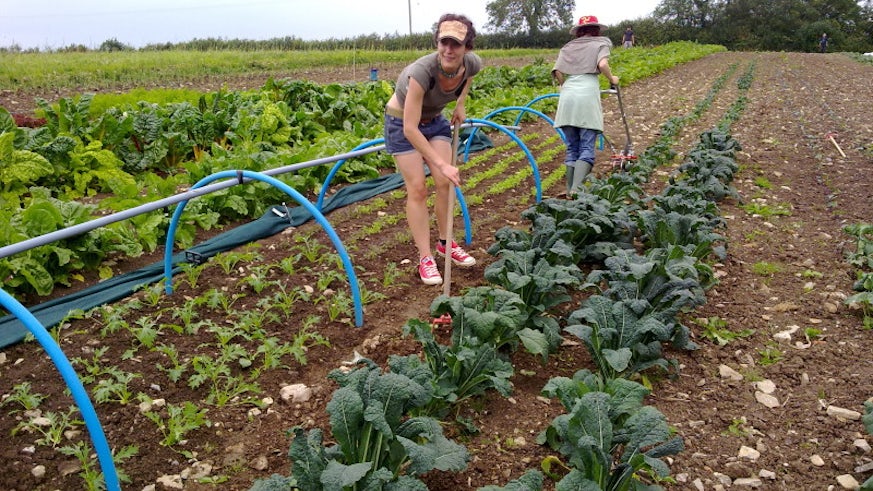Participatory action research benefits local organisations as well as students
24 Tachwedd 2015

Students from the School of Planning and Geography recently made an impact on food communities in Cardiff through their live project modules.
A paper published by the Food Research Collaboration explores how students taking the Sustainable Food Systems module, offered on the MSc Sustainability Planning and Environmental Policy and the MSc Food, Space and Society, recently honed their research skills by supporting local food projects though participatory action research.
Participatory action research sees collaboration between academic centres and organisation. It aims to generate useful knowledge and translate it into specific actions. Over the past two years seven different projects have benefitted from student input through participatory action research, ranging from the wholesale market, to school holiday hunger or exploring opportunities for growing spaces in the city.
Two of these projects have been explored in depth in a new paper entitled Participatory Action Research with Local Communications: Transforming our Food System. One explored the opportunities and challenges of establishing a local ‘food hub’ by the Riverside Community Market Association while the other looked into the low uptake of Riverside Market Garden’s vegetable box delivery scheme.
The students’ participation included engaging with different stakeholders, researching community-building and food supply chains, and exploring issues around economic sustainability that can affect the public’s purchasing behaviour.
Dr. Ana Moragues Faus, Research Associate at the School of Planning and Geography explains: “Not only does the live project module help students gain invaluable skills tocomplement their academic qualifications but, as the students are expected to work with the organisations to develop the research project and identify the questions that need to be answered, it also provides the organisations with some resource they may otherwise have struggled to find.”
For the Riverside Community Market Association this project helped them identify where the food hub should be located and what kind of existing networks can support them with this process. It also suggested ways in which the food hub can interact with the local community and how it can act as a catalyst for bringing the community together, through physical retail space, cafes and offering a place for people to meet and establish supplier relationships. Importantly the students identified a gap in the market which calls for a stronger food network in the relevant neighbourhoods; a cohesive way to bring together all of the existing initiatives.
The second project, surrounding Riverside Market Garden’s vegetable box delivery scheme, explored customer behaviours related to how they buy their vegetables and why they do so in that way. Conclusions here found that convenience was a large factor, and that stakeholders were more likely to pick up produce from local greengrocers than from the weekly farmer’s market or to order a delivery box. The research also found that the vegetable box scheme hadn’t been well advertised so students were able to make recommendations regarding visibility of service offering and suggested Riverside Market Garde offer different delivery timeslots to accommodate customers.
As well as identifying very clear tangible outcomes for the organisations involved the paper calls for a more engaged university that also offers students real life experiences.
Dr. Moragues Faus continues: “One of the main messages that comes through for me is how we as a University can (and should) have an impact on our immediate local context. In the current academic career there is an enormous pressure to produce high-impact factor publications and attract research grants, therefore it is key to find creative ways to collaborate and promote other values inside our universities.
“Participating in these live projects offers a tool to reflect on academic practice and the role of University in building a fairer society. For me, putting students, practitioners and academics through these live projects together constitutes a small contribution to changing the food system that all of us are part of.”
The Food Research Collaboration is a project to facilitate joint working by academics and Civil Society Organisations to improve the UK food system. The full paper is available to view on the Food Research Collaboration website.